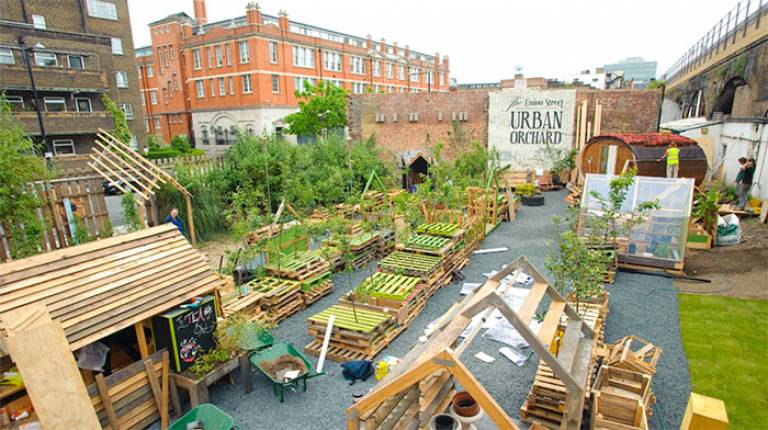
Overview
Most of the professional training, thinking and strategies of architects, urban designers and planners are strictly three-dimensional. In reality, of course, the city is four-dimensional, and one needs to acknowledge the influence of time in planning and design strategies. Similarly, there has been relatively little analysis of the importance of interim, short-term or 'meanwhile' activities in urban areas. In an era of increasing pressure on scarce resources, we cannot wait for long-term solutions to vacancy or dereliction. Instead, we need to view temporary uses as increasingly legitimate and important in their own right. They can be a powerful tool through which we can drip-feed initiatives for incremental change – as and when we have the resources – while being guided by a loose-fit vision.
Peter Bishop and Lesley Williams explore the growing interest among practitioners at the cutting edge of architecture, urban design and regeneration, in temporary, interim, 'pop-up' or 'meanwhile' uses for land and buildings in our urban areas. They explore the origins and the social, economic and technological drivers behind this phenomenon, and its place within modern planning theory and practice. The Temporary City challenges our preoccupation with long-term strategies and masterplans and questions our ability to achieve these in the face of increasing resource constraints and political and economic uncertainty. The book includes 68 diverse case studies from Europe and North America which illustrate the range of temporary use opportunities and the benefits that these can bring.
This is essential reading for all those struggling to address the current problems of urban renewal in an era of great change. It offers a prism through which to view the city as a rich mosaic of time-limited, but inspiring urban interventions.
People
Peter Bishop
View Peter's profile
Send Peter an email
Lesley Williams
Urbanism Communities Cities Close
Close

